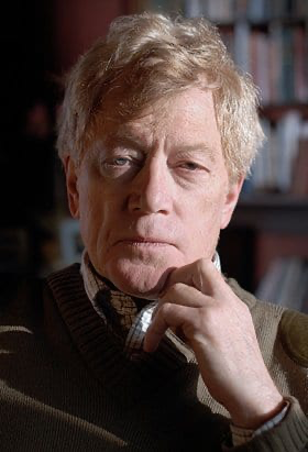“The search for beauty is the search for home, for a place where you can be at home with yourself, and others, but in particular where you belong. … That means seeing yourself as an other, from the outside. … You want to be at home with what you find. This search for being at home does not start with high art, nor does it end there. … High art challenges us in the deepest parts of our being… but that is not where the search for beauty begins, nor is it where it ends. It begins and ends in everyday life.” ROGER SCRUTON

“Beauty and Desecration”
Lecture by Roger Scruton, presented at “The Power of Beauty Conference,” Franciscan University of Steubenville, October, 2014.
Lecture: https://youtu.be/IqaIFzVd0qk Q&A: https://youtu.be/SYgsbXQPAdA
The British philosopher Roger Scruton (1944-2020) was a prolific defender of the value of beauty. Our resource collection includes many of his lectures, articles, and books. In the last decades of his life, Scruton was an active member of his local Anglican church, where he played the organ, and he identified himself as a Christian, but his theological commitments are at best obscure. He is not necessarily offering a Christian perspective on beauty, but he is a helpful guide into the subject.
In this lecture, Scruton explores ways in which contemporary culture has turned away from beauty, preferring ugliness and even the desecration of things once considered beautiful, sacred, and meaningful. One culprit that Scruton identifies is our obsession with utilitarianism. He points out that not everything can be find its reason for existence in being a means to an end. Beauty is primarily concerned with the ways in which things are ends in themselves. He suggests that the ability to imagine what it will be like to live with the consequences of your current actions requires “aesthetic reasoning” and “aesthetic judgment.”
Scruton understands beauty especially in terms of harmony and fittingness. These categories apply not only to visual art, but to many aspects of our lives. For this reason he sees beauty as being especially concerned with the human quest for belonging, for fitting in, and finding our place in the world. Much art of the past tries to communicate this sense of tranquility and belonging, but much art of the present is suspicious of the sense of belonging, preferring to expose the power dynamics in our world that allow some to belong while leaving others on the outside looking in. Such artists see beauty as deception. Scruton says that this way of construing reality “wipes away the face of the world.” He wants to call us back to a vision of the world in which we can trust the beauty that we see around us.